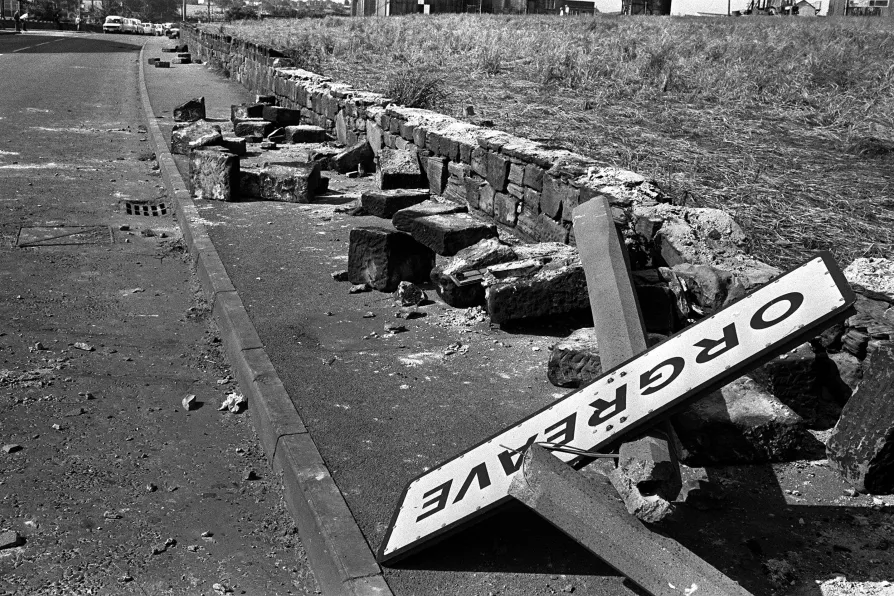
 A twisted sign, felled concrete posts and a broken wall tell the story of violence outside a coking plant in Orgreave, South Yorkshire, June 18, 1984
A twisted sign, felled concrete posts and a broken wall tell the story of violence outside a coking plant in Orgreave, South Yorkshire, June 18, 1984
NORTHUMBRIA Police destroyed records just last April that related to the 1984-5 miners’ strike and the clash between police and pickets at Orgreave, a freedom of information request has revealed.
Orgreave Truth & Justice Campaign secretary Kate Flannery has called the revelation “extremely disturbing.”
Today she said: “We are now understandably worried about how many other police forces may have recently destroyed or intend to destroy important information that would be very relevant in an Orgreave inquiry or investigation.”
After the Tory government ruled out an inquiry into the policing at Orgreave in 2016, Parliament’s home affairs committee’s then chairwoman Yvette Cooper asked 10 forces involved to set out what information they held on the incident which was not already in the public domain.
Northumbria Police said in its response that it had found 15 documents of relevance. They covered the “management and logistics” of the deployment of the police special units in South Yorkshire; a report by a superintendent regarding the organisation and timetable of the day; and documents relating to the subsequent handling of one of the most violent assaults by a police officer on a miner captured by national TV crews.
Responding last week to the campaign group’s freedom of information request, the force confirmed that “two boxes containing documents/records in relation to the miners’ strike and Orgreave were destroyed” on April 29 and 30 2024.
“As part of the records management review process they were destroyed as they were outside of the retention period,” it added.
Kevin Horne, a miner arrested at Orgreave, said: “Any argument that documents and records were simply destroyed on the basis of time passed does not make sense given that Northumbria Police and other police forces had by April 2024 already kept the documents for nearly 40 years.”
Orgreave Truth & Justice Campaign activist Chris Peace said: “While our campaign is aware of many Home Office, cabinet papers and minutes from the ‘secret’ MISC101 committee that are now in the public domain and confirm this, it is of vital importance that the fact of the destruction of these police papers — just when we are on the cusp of some kind of inquiry being ordered — is reported widely and questions asked why.”
The confrontation at the South Yorkshire coking plant on June 18 1984 is regarded as one of the most violent clashes in British industrial history.
The National Union of Mineworkers aimed to use sheer numbers to prevent access to the plant by strike-breaking lorry drivers collecting coke for use at Scunthorpe.
But rather than keeping order, thousands of police from 18 forces, kitted out in riot gear and supported by dogs and mounted officers, brutally turned on the pickets in an attempt to “defeat” them.
The OTJC was formed in 2012 to campaign for a public inquiry into the policing at Orgreave.
The force was contacted for comment.

A past confrontation permanently shaped the methods the state will use to protect employers against any claims by their employees, writes MATT WRACK, but unions are readying to face the challenge

The Home Secretary’s recent letter suggests the Labour government may finally deliver on its nine-year manifesto commitment, writes KATE FLANNERY, but we must move quickly: as recently as 2024 Northumbria police destroyed miners’ strike documents












